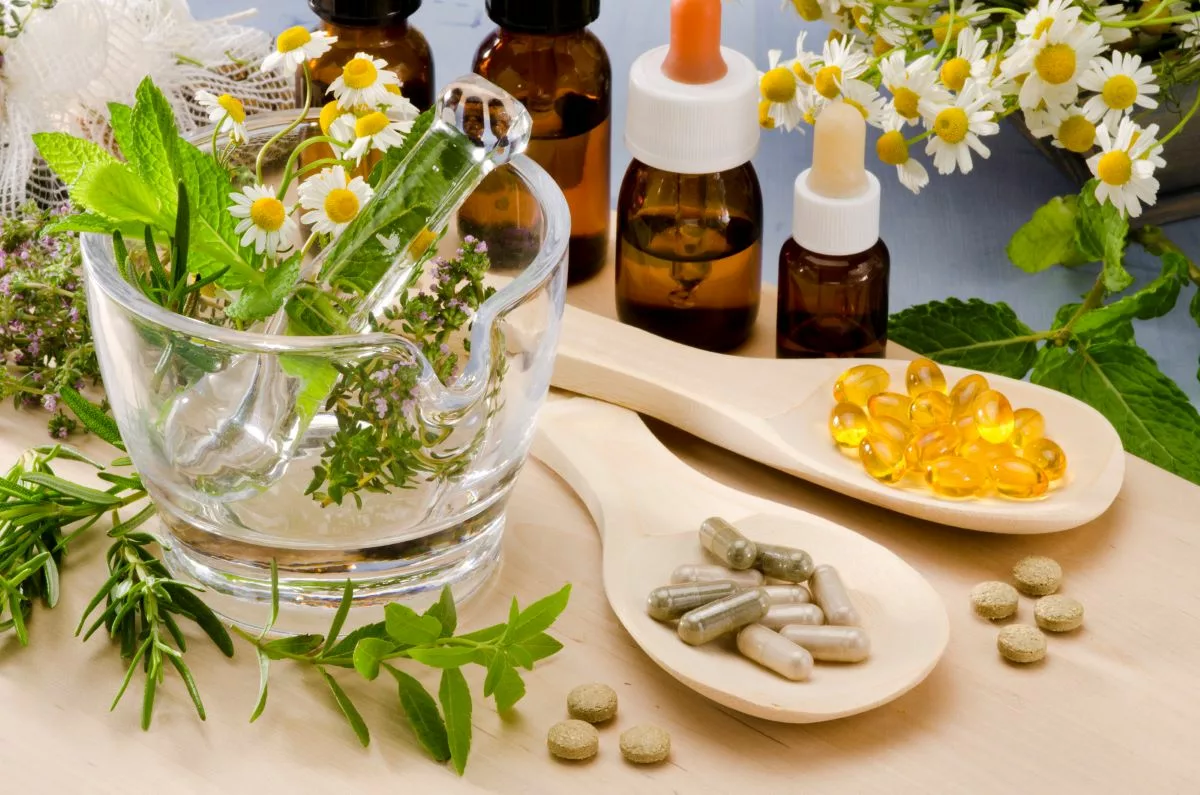Have you ever had one of those days when it feels like a dark cloud is following you? Yes, we have all experienced this. Anxiety and depression can be unwelcome guests who don't know when to leave. Sure, taking a pill or talking it out with a therapist can help, but they're often not enough on their own.
Imagine seeing yourself as a whole picture—mind, body, and spirit—all working together. Instead of just treating the sad or anxious “you,” holistic methods aim to get every part of you back in balance. So, stick around if you're curious about a whole-person way to kick those blues and jitters to the curb. We're looking deeply into holistic practices that can make you feel more like you.
What is Holistic Medicine?
The word “holistic” has been used often, but what does it mean? At its core, holistic medicine is like your best friend who takes the time to listen to your whole story—not just the highlight reel. It considers every aspect of you, such as your thoughts, feelings, body, and even spirit.
The idea is simple. Imagine your well-being as a jigsaw puzzle. The whole picture is only complete if more than one piece is missing or damaged. That's what holistic medicine aims to fix. It doesn't just focus on that nagging headache or restless feeling; it wants to know what's happening in your life that might stir the pot. Because, let's face it, treating only a part of the problem is like mopping the floor while the faucet is still running.
The Limitations of Conventional Medicine
So, you go to the doctor, spill your guts about your feelings, and probably walk out with a prescription. Don't get us wrong—medication and talking to a pro are often essential parts of your healing journey. But let's be honest, they're not one-size-fits-all solutions. It’s like trying to fix a leaking roof with duct tape. Sure, it can hold up for a while, but eventually, you’ll find yourself back at square one, dealing with the same old issues.
Importance of a Holistic Approach
So, you're probably wondering, “Why go holistic?” Here's the scoop: holistic approaches look at your life like a giant, colorful tapestry. Every thread—your mood, diet, sleep, even your relationships—plays a part in your overall well-being. If one thread unravels, it can mess up the whole design.
In simpler terms, holistic medicine aims to get to the root of why you're feeling anxious or down, not just slap a quick fix on it. It's like being a detective in your proper being. You're no longer simply throwing water at the fire but identifying what brought about it in the first location. By tackling the underlying problems, the hope is that you will no longer only sense better but be better in the long run.
Holistic Methods for Managing Anxiety and Depression
Let's get down to the nitty-gritty—the holistic methods that can be your trusty companions on the journey to managing anxiety and depression.
Meditation and Mindfulness
Picture this: your mind is a busy highway with thoughts zooming by like cars. Meditation and mindfulness are like the traffic lights. They slow matters down, give you a second to breathe, and help you regain management. Whether a guided meditation or taking a few minutes daily to focus on your breath, those practices can paint wonders.
Exercise and Physical Activity
Have you ever heard the phrase “move it or lose it”? Well, it applies to your mental health, too. When you exercise, your brain releases those feel-good chemicals called endorphins. They are like your brain’s little entertainers that lift your mood and reduce anxiety. You don’t have to run a marathon; A brisk walk or some yoga might do the trick.
Diet and Nutrition
Think of your body as a car. It needs the right fuel to run smoothly. Nutritious foods like omega-3 fatty acids (found in salmon and walnuts) and antioxidants (hello, colorful veggies) can boost your brain power and concentration. Cut down on the sugary stuff and processed foods; they're like putting cheap gas in your car—it might work, but it won't run at its best.
Herbal Remedies
Nature's Pharmacy has some gems that can help ease anxiety and depression. For centuries, herbs like lavender, chamomile, and St. John's Wort have been used to soothe troubled minds. Of course, always consult with a healthcare professional before diving into herbal remedies.
Mind-Body Techniques
Have you tried acupuncture, yoga, or tai chi? These practices pay attention to the connection between your frame and mind. They're like a dance that helps you find balance. Yoga, for example, not only stretches your body but also calms your mind with deep breathing and meditation.
Remember, these methods aren't about quick fixes. They're more like tools in your mental health toolbox.
Precautions and Consultation
Before you jump into the world of holistic approaches, here's a friendly heads-up: what works like magic for one person might be different for another. It's like finding your favorite ice cream flavor—everyone has their own taste.
So, before you start any of these methods, it's a good idea to chat with the pros. Think of it as calling a wise friend for advice. Your healthcare experts and practitioners can customize a holistic plan just for you, like tailoring a suit to fit perfectly. Trust their guidance; they've got your back. And never stop taking medication without consulting a doctor.
Going solo on this journey can be like wandering in a forest without a map. Don't be shy about seeking help—your mental health is worth it. You'll likely find that combining conventional and holistic treatments, known as functional medicine, provides a flexible and effective path to healing.
Conclusion
We touched upon this in our healing journey from anxiety and depression through holistic methods. And so, the bottom line….? Well, it’s like this: When you feel down or low, it’s not just one thing being amiss; a few things come into play.
Holistic methods, like meditation, staying active, eating well, and exploring herbal remedies, are like your trusty companions on this adventure.
But here's the deal: you're unique, like a fingerprint. At the same time, something else may work better for your partner. Therefore, talking to people who know what they are doing is like having a road map to good mental health.
Here's to a happier, more balanced you—because you're worth it!
Image by pathastings via Deposit Photos
Coffee junkie. Spoonie. Writer about all things chronic illness and mental health. Friend of animals everywhere.
Dr. Wilson graduated from Rosalind Franklin University of Medicine and Science and completed her residency in Internal Medicine at Advocate Good Shepherd Hospital in Barrington, IL. Dr. Wilson specializes in providing culturally competent and trauma-informed care to patients with physical disabilities. In addition to her private practice, she works as a science communicator, teaching health literacy to middle school and high school students in her local school district.









